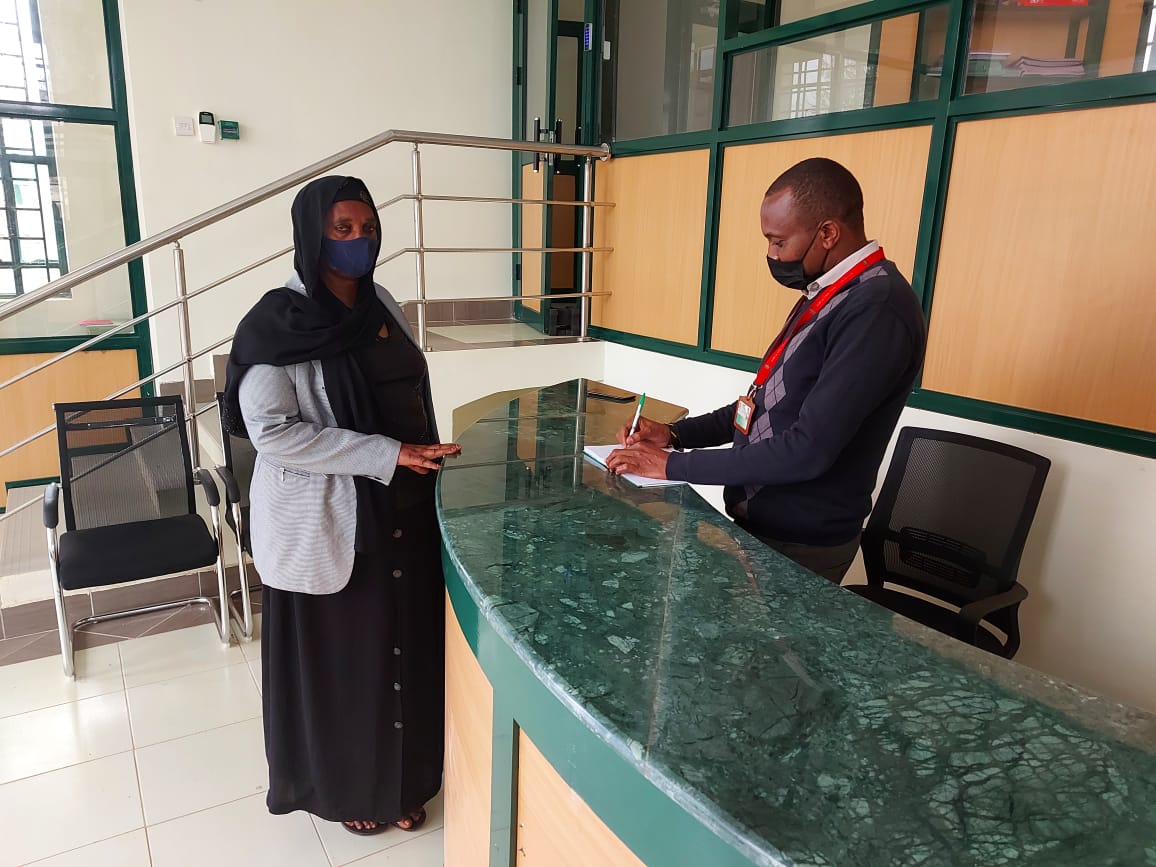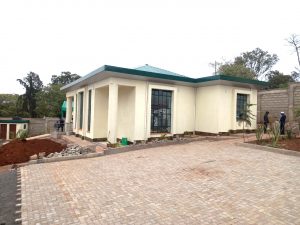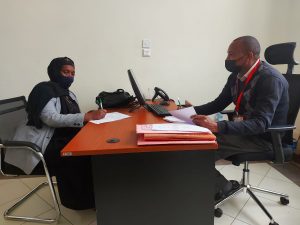
The United States Agency for International Development (USAID) and the Agricultural Finance Corporation (AFC), in collaboration with the county government of Marsabit, constructed the region’s first AFC branch located at the town center.
The branch, like AFC’s 46 other branches, provides capital to support financial access for the agricultural and livestock sector. It also promotes tailored financial products, primarily for women, youth, and cooperatives. In Marsabit, the corporation will partner with the Impact for Northern Kenya Fund to provide wholesale loans for lending to micro, small, and medium-sized enterprises (MSMEs).
The three partners started the construction of the branch in September 2020 and completed it in July 2021 to widen the reach of financial services in Marsabit town. The branch also opens more credit facilities to improve and expand access to formal finance for local smallscale farmers and producers. AFC supports the development of the agricultural sector by offering financing facilities and risk share instruments to MSMEs. The financing offered ranges from $2,000 to $5 million cover loans for the crop and livestock value chain, value addition, processing, and agricultural equipment and machinery.
The Financing Challenges
Initially, Marsabit farmers in need of credit from AFC had to travel over 300 kilometers to Meru County for the essential service. The long distance discouraged many clients from accessing financial services, as most of them are small-scale farmers and businesses. In addition, in a region that is 32 percent Muslim, most banks did not follow Sharia banking.
Many financial institutions also offered short-term financing to farmers, resulting in loose value chains within the livestock sector, low uptake of insurance, and reliance on collateralized lending. AFC’s financing model is based on service provision, with a newly approved strategic plan for 2017- 2022 that emphasizes financial inclusion of all population segments regardless of age, religion, gender, and geographical location. The corporation will provide agricultural credit, technical support, and mobilize different partners to address community financial concerns.
The Construction of the Branch

The construction of the branch was a continuation of the strong and vibrant partnership that USAID had with AFC and the Marsabit County government. To construct the branch, USAID, through Feed the Future Kenya Livestock Market Systems Activity led by ACDI/VOCA, co-invested $150,000, and AFC co-invested $90,000, bringing the total investment to $240,000. The county government of Marsabit provided the land used for the construction of the branch. USAID bought off the risk on investment for the AFC bank. With an operational business unit in Marsabit County, the branch is projected to reach 2,000 livestock producers and farmers in other agricultural value chains. AFC will provide agricultural credit and technical support and mobilize different partners to address community financial concerns.
AFC will team up with with development partners and the emerging fin-tech industry, which uses technology to improve activities in finance. This will reduce the risk of the agriculture and livestock sectors. The Activity will also use its community networks to link entrepreneurs, especially women and youth, with the branch to help start or grow their businesses.
Providing Competitive Loan Products for Women and Youth
The bank has taken steps to offer Shariah-compliant products that are currently missing in the region. To increase the lending frequency, the bank will cap the interest rate at 10 percent, compared to the 14 percent offered by several other financial institutions, and provide personalized and long-term funding to producers. In addition, AFC will work closely with microfinance institutions and savings and credit cooperative societies to devolve its services and generate a common understanding of the value chains and product-based lending specific to the arid and semi-arid regions.
Galgallu Guyo Bonaya, a livestock farmer in Marsabit County, is grateful an AFC branch has come closer to home and encourages more farmers to visit the bank.

To increase the lending frequency, the bank will cap the interest rate at 10 percent, compared to the 14 percent offered by several other financial institutions. Photo credit: Guyo Yattani/ACDI/VOCA
“AFC is now here in Marsabit. I encourage other farmers to come and benefit from the opportunity to obtain loans from the bank and grow the economy.”
Galgallu Guyo Bonaya, livestock farmer, Marsabit County
The corporation will also employ field officers to reach out to potential customers. To create employment for local youth, the bank is planning an annual internship and apprenticeship program for a total of 70 local graduates country-wide. The youth have a good chance at employment with the corporation.
Learn more about our work in Kenya.
Learn more about the Feed the Future Kenya Livestock Market Systems Activity.








